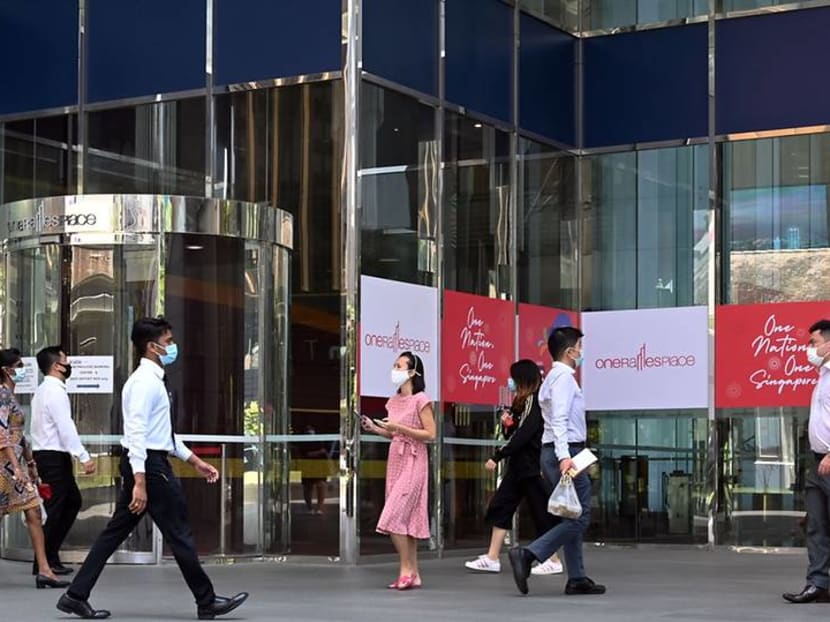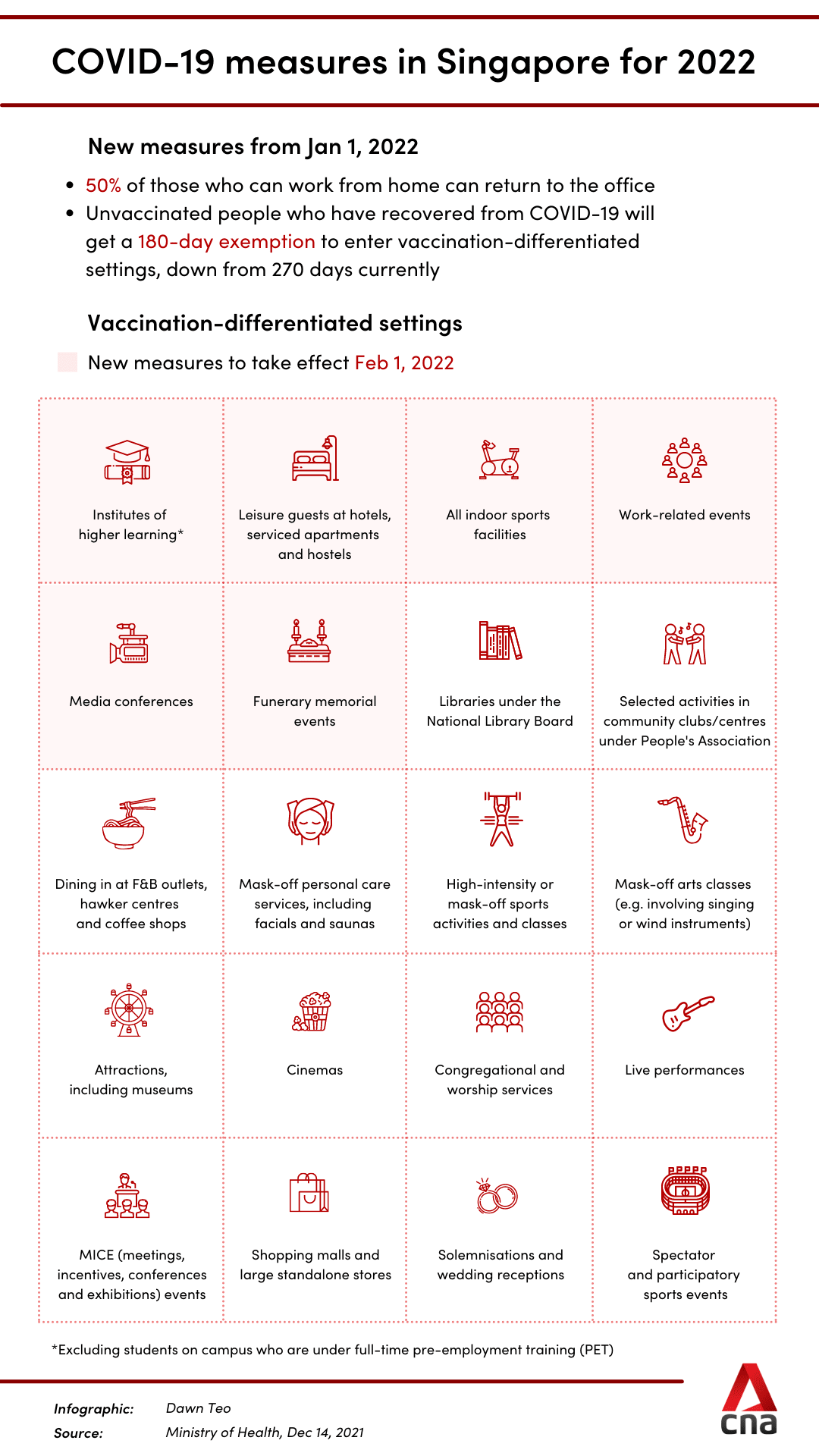Work-from-home no longer the default from Jan 1, up to 50% of workers allowed back in the office

Office workers at Raffles Place on Jul 22, 2021. (File photo: Marcus Mark Ramos)
SINGAPORE: From Jan 1, 50 per cent of employees who can work from home will be allowed to return to the office, said the Ministry of Health (MOH) on Tuesday (Dec 14).
This is because previously-announced workforce vaccination measures will kick in on that date, meaning Singapore will be “in a better position to ease the current default work-from-home posture”, said MOH.
Such measures include only allowing employees who are fully vaccinated or who have recently recovered from COVID-19 to return to the workplace.
Working from home has been the default since September, when Singapore began seeing another rise in COVID-19 cases.
COVID-19 multi-ministry task force co-chair Gan Kim Yong said authorities recognise that such an arrangement is “not ideal and not sustainable in the long run, as face-to-face interaction is important for team dynamics, as well as other operational considerations”.
Meanwhile, social gatherings at the workplace will continue to be disallowed, to "minimise mingling and reduce infection risks", said Mr Gan.
At the same time, co-chair of the task force Lawrence Wong said the task force is "considering" removing the concession for unvaccinated persons to return to the workplace with a negative test – which was initially said to be allowed under the workforce vaccination measures.
“It does have implications for employers and workers. And that's why we are consulting and discussing with our tripartite partners on this particular move. We will provide more details when the arrangements are finalised.”
In addition, MOH said the cap on participants at work-related events will be raised above the current limit of 50 people.
But this will only apply to events where all participants remain masked and seated, at a safe distance from each other, it said. All participants must also meet the VDS requirements. The ministry added that more details will be provided separately.
VACCINATION-DIFFERENTIATED SAFE MANAGEMENT MEASURES EXPANDED
Vaccination differentiated safe management measures (VDS) for COVID-19 will also be expanded from Feb 1 to cover more areas.
This is in light of the "importance of vaccinations and boosters" in Singapore's fight against the new Omicron variant, said Mr Wong.
From this date, such measures will also cover all indoor sports facilities, Institutes of Higher Learning (IHLs), and leisure guests in hotels, hostels and serviced apartments.
“However, students in IHLs who are completing their full-time NITEC/Higher NITEC, Diploma or Degree programmes will be exempted from the VDS measures requirement when entering their respective educational institutions,” said MOH. It added that more details will be released by the relevant agencies.
In addition, from Feb 1, all events – irrespective of size – must implement VDS to proceed, said MOH.
This marks a tightening of current rules, where only events with more than 50 attendees are required to do so.
This is because "even smaller-sized events can spark transmission that can then spread to wider groups of people, especially in view of the Omicron variant,” said MOH.
But to minimise disruptions to events that have already been planned for, authorities “will remove the existing concession only in end January 2022”.

EXPANDING PILOTS
MOH also provided an update on the roll-out of “VDS+Test” pilots, which covered sports settings, selected mass sporting events, as well as selected MICE events.
Under the pilot, further easing of safe management measures were allowed for fully vaccinated individuals with a valid negative Antigen Rapid Test (ART) result on-site prior to the activity.
“These pilots have been successful thus far, given strong compliance and enforcement on the ground, and we will continue to expand these pilots where feasible,” said the ministry.
It also urged non-fully vaccinated recovered persons to receive one dose of an mRNA vaccine at least three months after the date of diagnosis of the COVID-19 infection.
BOOKMARK THIS: Our comprehensive coverage of the COVID-19 pandemic and its developments
Download our app or subscribe to our Telegram channel for the latest updates on the coronavirus pandemic: https://cna.asia/telegram








